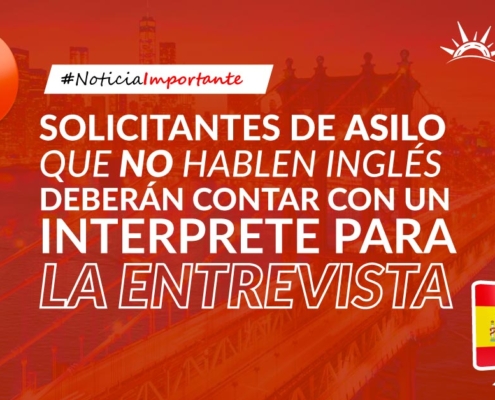Tag Archive for: Asylum Interview

What evidence do you need to best support your asylum claim?
Asylum Petition
Applying for asylum in the United States is a process that requires strong evidence to show that your life would be in danger if you were to return to your home country.
This blog provides you with a detailed guide on the evidence needed…

VAWA Visa in the United States: How to Apply and What Benefits Does It Offer?
Uncategorized
The VAWA (Violence Against Women Act) Visa is a crucial resource for victims of domestic violence seeking safety and stability in the United States. In this article, we'll walk you through the VAWA Visa application process and explain the…

Basic Guide to Asylum in the U.S. Protection & Process
Uncategorized
Asylum in the United States is a vitally important resource for those facing persecution, conflict, or extreme situations in their home countries.
This form of protection is a fundamental right that provides a safe haven for those who…

Major Changes to Affirmative Asylum Interviews Starting September 13
Uncategorized
As of September 13, 2023, we at Immigration PRO want to inform you about an important change in affirmative asylum interview procedures. USCIS (U.S. Citizenship and Immigration Services) has established a new requirement for affirmative…

Major Changes to Affirmative Asylum Interviews Starting September 13
Uncategorized
As of September 13, 2023, we at Immigration PRO want to inform you about an important change in affirmative asylum interview procedures. USCIS (United States Citizenship and Immigration Services) has established a new requirement for affirmative…

Major Changes to Affirmative Asylum Interviews Starting September 13
Uncategorized
As of September 13, 2023, we at Immigration PRO want to inform you about an important change in affirmative asylum interview procedures. USCIS (United States Citizenship and Immigration Services) has established a new requirement for affirmative…

Major Changes to Affirmative Asylum Interviews Starting September 13
UncategorizedDiscover the key changes to affirmative asylum procedures that will come into force from 13 September 2023. At Immigration PRO, we keep you informed about the latest USCIS updates related to asylum interviews. Learn why asylum seekers must now have an interpreter if they don't speak English and how this can affect your process. Learn vital about the requirements and implications of this change in our blog post.





